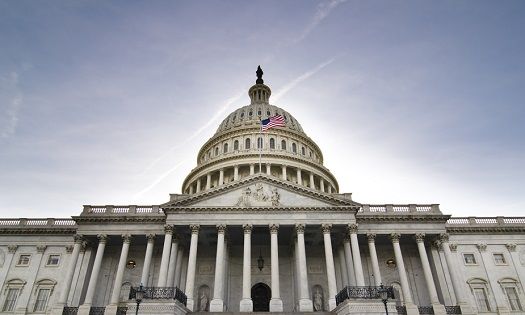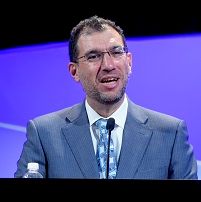Article
Slavitt, Boehner Emphasize Need for Caution and Collaboration in Healthcare Debate
Author(s):
Neither known for bitten tongues, both spoke frankly about the complex process.

Never one for a bitten tongue, former Centers for Medicare & Medicaid Services administrator Andy Slavitt had sharp words for politicians and health industry figures when he spoke at the HIMSS 2017 conference in Orlando last week.
HIMSS (Healthcare Information and Management Systems Society) hosted a “fireside chat,” with Slavitt and Mark McLellan, who headed the CMS from 2004 to 2006, and before that the US Food and Drug Administration (FDA) from 2002 to 2004 under the Bush administration.
“When you repeal the Affordable Care Act (ACA), you repeal the money,” Slavitt said, referring to Medicaid expansion and cautioning about the number of lives and jobs that currently revolve around that aspect of the bill. He had barbs for Republicans regarding the uncertainty of a potential ACA replacement: “At a certain point you have to wake up and realize that you won,” in reference to November’s election, encouraging the empowered GOP to move forward with the healthcare debate.
Still, he decried the seesaw of power that has kept American patients in constant limbo over the future of care and costs, with dramatic shifts in philosophy seeming to occur every eight years. “I would rather take half a loaf that both parties own than a full loaf that only one or the other does,” he said, emphasizing a need for some form of compromise rather than total hegemony by Democrats or Republicans.
For his part, McClellan did acknowledge that fixing the healthcare situation would be far more complex and time-consuming than any mantra could betray. “The full resolution on ACA repeal and replace is going to take a while, even if there is some repeal legislation soon. A lot of the pieces and specific details on how to replace and implement are going to take some time to unfold,” he remarked, when asked what he saw as the outlook for the process.
John Boehner, former Republican Speaker of the House, spoke on the final day of HIMSS alongside former Pennsylvania Governor Ed Rendell. Boehner was also frank about potential replacement, seeing a lack of consensus within the GOP as an obstacle even before the political chams between Democrats and Republicans.
"In the 25 years that I served in the United States Congress, Republicans never, ever, one time agreed on what a healthcare proposal should look like. Not once,” he said, predicting that “repeal-and-replace” would actually manifest itself as a series of tweaks as opposed to an actual overhaul.

“The current issue is, there’s really no plan,” said Slavitt (pictured left, courtesy of the American Medical Association) in direct comment. “Wherever we end up, whatever changes we end up making, history tells us we’re going to live with for the next 10 to 15 years…If we do any kind of do-over and we start from scratch, it would be an incredibly long cycle for people to figure out how to get around that. We need to do more incremental thinking.”
Still, he acknowledged failings in the rollout of the Act: “What we didn’t do very well was help the average American family understand what the ACA meant to them and how much it changed their lives. Half the people who were employed used to have lifetime caps in their policies, they don’t have that anymore and they don’t know it’s from the ACA. We could have done a better job helping the American people understand what the benefits are.”
Since even before he left the CMS job following the Inauguration, Slavitt has continually argued that sweeping changes will impact Americans in ways that they may not be aware of, tweeting earlier today that “As much as the #ACA FELT unpopular during the election, should be clear now that taking care away from millions is far more unpopular.”
The Senate Finance Committee voted 13-12 yesterday to advance the Trump administration’s replacement for Slavitt at the CMS, Seema Verma, to a full vote. Verma is a health industry consultant who was heavily involved in the construction of then-Indiana Governor Mike Pence’s Healthy Indiana Plan. The hearings could be contentious, and if she is approved, Verma could wield a great deal of influence on the future of American healthcare. As McClellan pointed out, the government spends well over one trillion dollars per year on Medicare and Medicaid.
A more comprehensive version of this article appears in Healthcare Analytics News, a newly-launched partner site covering healthcare technology, security, innovation, and policy.


